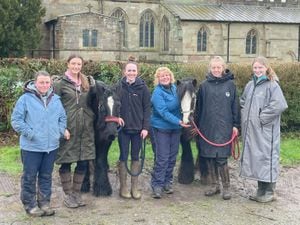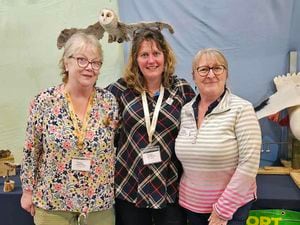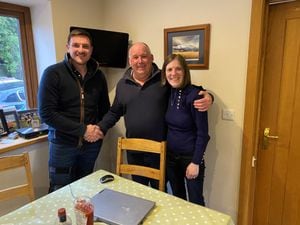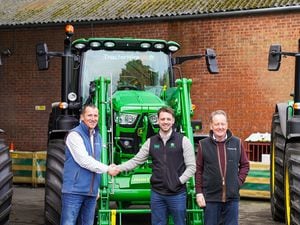Farmers will be paid for improving environment, says Gove
Subsidies for farmers will depend on enhancing animal welfare, maintaining beautiful landscapes and improving the natural environment after Brexit, Michael Gove said.
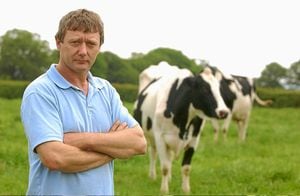
The Environment Secretary used his speech to the National Farmers' Union conference in Birmingham to assure farmers that agriculture was at the heart of Government thinking.
Mr Gove said farming subsidies should be replaced by payments for "public goods" after the UK quits the EU, and repeated his support for funding measures such as planting woods to stop flooding and creating wildlife habitats.
But Shropshire farmer Andrew Bebb said this was something that farmers had been doing for a long time, and added that many of the existing EU subsidies also depended on doing environmental works.
He said the main priority should be to protect the industry's ability to produce food, warning that the amount of suitable farmland had fallen considerably in recent decades due to housing development and road schemes.
"In Britain we produce enough food for just over 60 per cent of the people in this country," said Mr Bebb, who runs an organic dairy farm at Hanwood, near Shrewsbury. "We're a small country, but one with a large population."
Mr Bebb said most farmers recognised their subsidies would get smaller when Britain leaves the EU.
"The EU will not have the same money to distribute among its farming community when we leave, because Britain has been one of the biggest contributors to its budget," he said.
"And the UK Government is not going to pay farmers more than its counterparts in Europe.
"We accept there will be a little less money coming from the Government, and the person who pays the piper gets to call the tune."
Concerns have been raised that barriers to trade and free movement could hit the agricultural sector, while deals with countries including the US could see cheap imports of produce such as chlorinated chicken and hormone-fed beef.
Mr Gove was warned by NFU president Meurig Raymond that farmers "must have frictionless trade with the EU" after Brexit, and food and farming standards should not slip or be undermined by bad trade deals.
Mr Gove said future methods of agricultural support should preserve the heritage and culture of farming communities which maintain precious landscapes.
He said Cumbria, Northumberland, the Pennines and Yorkshire Dales would not be "breathtakingly beautiful" and resilient without the work of upland farmers.
"Preserving profitable farm businesses in those communities is just as much a public good as investment in anything I know," he will say.
"I also believe investing in higher animal welfare standards and investing in improved training and education for those in agriculture and food production are clear public goods."
He suggested pilot schemes could offer payments to farmers delivering higher welfare outcomes or running trial approaches to boost animal wellbeing that are not yet standard in the industry.
Mr Bebb said he had no problem with the Government rewarding farmers which supported the environment.
But he said this was second nature to most farmers.
"If it wasn't for the farmers, there wouldn't be any wildlife," he said.
"My family has been here for over 100 years, we don't farm for today, we farm for the next generation, whether we get paid for it or not."
Mr Gove said the voices of farmers and food producers were more central to Government thinking than at any time during the past 50 years.
He said Brexit would allow for the design of better policies for the UK's £110 billion food and farmer sector.
Mr Raymond warned everything in the sector, including the final shape of any domestic agricultural policy, would dependent on having a deal that made it easy to trade with the EU.
"Those who advocate a cheap food policy, of scouring the world for low-cost food should bear in mind the price paid in traceability, in standards and in the off-shoring of environmental impact," he said.
"British farmers are extremely proud of the standards they adhere to, most of them linked to the Red Tractor, which ensures the very best in traceability," said Mr Raymond.
"We mustn't let those standards slip and be undermined by a bad trade deal during Brexit negotiations."

